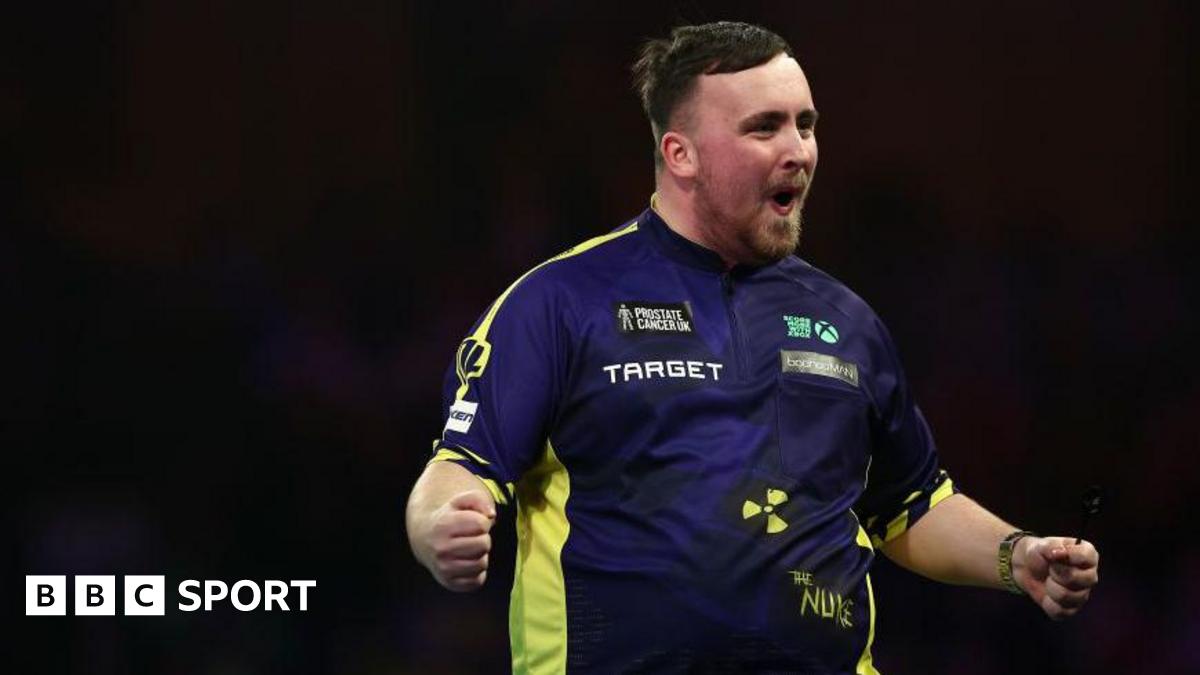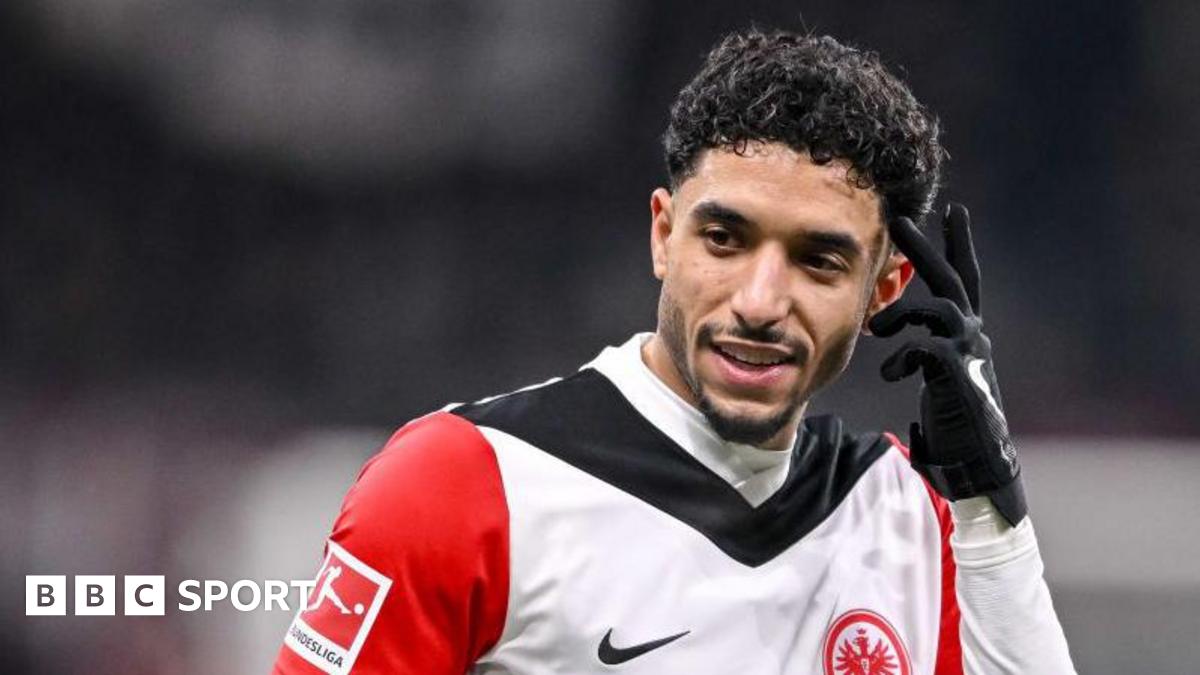ARTICLE AD BOX

Dani Olmo has disappeared from La Liga.
As of 1 January, his name - along with the lesser-known Pau Víctor - was removed from Barcelona's official list of 33 registered players approved by La Liga, the governing body led by Javier Tebas.
The £51m summer signing - and Euro 2024 winner with Spain - was registered as a special exemption only for the first half of the season because Barcelona's difficult financial situation could not meet La Liga's stringent wage cap restrictions.
He has scored six goals in 15 appearances this season but, as it stands, won't be able to play for the club again this season after a court twice rejected Barca's appeal to register the player on a second temporary basis.
According to La Liga, the court rejected the precautionary registration of Olmo after "none of the conditions necessary for the adoption of the precautionary measure were met".
This dramatic move marks the culmination of a confusing time at the Catalan club after they failed to provide any viable solution to register new players before the league's 31 December deadline.
The tension within the club's offices escalated on Friday as it became clear that their plan to secure the legal documentation for Olmo and Víctor had unravelled, creating what has to be considered a full-blown scandal.
Barcelona remain confident the issue will be sorted but, for now, they are left with a big asset left on the sidelines.
Image source, Getty Images
Image caption,Dani Olmo played a key role in Spain's Euro 2024 success
Why can't Olmo play for Barcelona?
This crisis encompasses sporting, financial, and reputational dimensions.
On the pitch, Hansi Flick's squad now faces the prospect of losing their marquee summer signing - an asset who could soon walk away for free.
Financially, Barcelona has to pay the full 48 million euros (£40m) to RB Leipzig for Olmo, with his long-term contract running until 2030.
They will also have to pay him the totality of his contract, a clause added to his contract, which leaves the club with a financial gap of 120 million euros (£100m).
And reputationally, the debacle tarnishes the club's image, particularly that of its president, Joan Laporta, who was voted in in March 2021.
Laporta, who has personally overseen this issue, now finds himself exposed.
Since the departure of chief executive Ferran Reverter in early 2022 and the resignation of economic vice president Eduard Romeu in 2024, two of 20 directors who have left unable to accept the way things are run at the club, Laporta has declined to fill these crucial roles, leaving him solely accountable for the fallout.
The situation deteriorated further after Barcelona faced two swift legal defeats in less than 72 hours before the La Liga deadline, as courts in Barcelona rejected the club's requests for provisional measures to register Olmo and Víctor.
With these avenues closed, Laporta turned to the Spanish Football Federation, requesting new licenses for both players, something that is not accepted by La Liga who do not allow a player to be registered by the same club twice in a season.
The Federation, led by Rafael Louzan, has little incentive to challenge La Liga, especially after Tebas was recently appointed as Louzan's vice president. This alignment has left Barcelona without allies, rendering Laporta's appeals futile.
The last glimmer of hope for Barcelona lies in a proposed deal to sell VIP seats at the future Spotify Camp Nou for 100–120 million euros - an amount significantly lower than what the club could have secured under less desperate circumstances.
Barcelona claims the funds have been paid, albeit after La Liga's deadline, and are now attempting to convince the league to accept the payment and allow the registration of players.
However, La Liga maintains that Barcelona failed to submit the required documentation confirming the transaction before the deadline, meaning the club cannot re-register Olmo or Víctor.
Ironically, while Barcelona may be blocked from re-registering their players, they might still be able to sign new ones. Yet, to facilitate any of this, the club has had to pre-sell seats in a stadium that does not yet exist.
What are Barcelona's financial difficulties?
The failure to register Olmo and Víctor is just one symptom of Barcelona's broader financial troubles.
Four months after the initial registration deadline, the club has yet to meet La Liga's stringent financial controls.
This is not the first instance of financial difficulty under Laporta. The 2022 sale of its digital media business, Barca Vision, intended to generate revenue, instead it resulted in a 141 million euro loss last season as money promised for the sale was not received.
Despite a new lucrative agreement with Nike, Barcelona remains constrained financially due to accumulated debt exceeding one billion euros, exacerbated by years of poor management and high operating costs - a situation that has persisted under Laporta's leadership.
Additionally, the renovation of the Spotify Camp Nou has added approximately 1.5 billion euros of debt, further straining the club's resources.
While the stadium's reopening is expected to generate significant revenue, it does little to offset the current financial predicament. Critics argue that the club no longer truly belongs to its season ticket holders, but rather to financial institutions and banks that now hold significant influence over its operations.
These repeated failures have eroded trust in Laporta's leadership both within the club and across Spanish football.
Laporta's leadership style, characterized by populist rhetoric and an aversion to accountability, has come under increasing scrutiny.
From failing to retain Lionel Messi to missing deadlines for the Camp Nou's reopening, his tenure has been marked by unfulfilled promises and controversial decisions.
Even more concerning is his willingness to sacrifice long-term stability for short-term gains with the famous levers, basically the selling of bits of the club, mortgaging its future.
Recent efforts to sell off parts of the club's identity, such as the proposed VIP seat deal with Middle Eastern investors, reflect a desperate attempt to keep the club afloat.
What next for Barcelona and Olmo?
Barcelona's crisis is more than a financial or sporting issue - it's a question of identity.
Laporta's actions have cast a shadow over the club's values, leaving fans and stakeholders questioning the direction of one of football's most iconic institutions.
Olmo's on-field contributions have mirrored the chaos surrounding his registration.
Initially a sensation with a goal every 63 minutes in his first three games, Olmo's influence waned coinciding with some injuries and the doubts about his future, managing only one goal every 207 minutes in his past 12 matches.
For now, he remains unregistered, and Barcelona remains mired in uncertainty.
The Catalan club would consider reaching an agreement with the players to terminate their current contracts.
This approach would allow the deregistered players to freely choose a new destination - with several Premier League clubs waiting in the wings - without any bureaucratic hurdles when processing a future transfer.
The termination agreement would only cover a six-month period, until 30 June, when Barcelona would want to re-sign them. However, this would only proceed if the players agree.
Olmo, according to his contract, is already entitled to leave for free right now without compensating Barcelona but, for the moment is happy at the club.
The club would also consider going to a civil court to ask for provisional measures, claiming their situation should be allowed to be resolved when the market closes on 2 February.
As La Liga tightens its grip, the once-mighty club faces a stark reality according to opposition groups to Laporta. They say without drastic changes in leadership and strategy, its future hangs precariously in the balance.

 1 week ago
5
1 week ago
5








 English (US) ·
English (US) ·